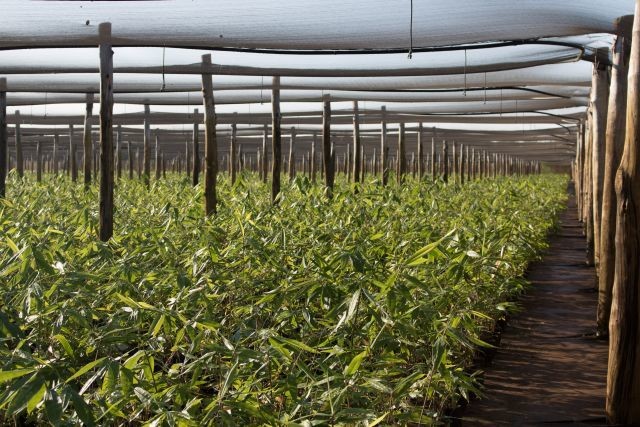In a bid to fight climate change, Grant Blumrick through “AfriBam Giant Bamboo Farm” have embarked on an initiative of planting giant bamboos in the country which among others is to also help in providing Malawians with a sustainable source of fuel and timber.
Mr Blumrick who has an experience in timber harvesting launched the initiative in 2014 after discovering the environmental degradation caused by uncontrolled cutting down of trees.
Blumrick suggested of planting giant bamboos because bamboos provides a rapidly renewable source of fuel wood and timber.
While hardwood trees can take 30 years to mature and must be replanted post-harvest, giant bamboo matures in only a handful of years and can be harvested every year for its entire lifecycle.
In the case of Blumrick’s non-invasive giant bamboo, the lifecycle is around 80 years.
Planting and harvesting bamboo for fuel can help limit the depletion of Malawi’s tree cover and natural forests. Giant woody bamboos can also sequester carbon, helping to curb climate change.
They’re one of several trees and plants that can generate benefits for people while also restoring land.
Blumrick’s business could also potentially help prevent vector-borne diseases like malaria, which are expected to become more prevalent in a warmer world.
Malaria is increasingly found in high altitude plateaus and hilly locations, which used to be malaria-free.
While there are many potential causes, malaria cases in Malawi have already increased from 50 in every 1,000 people in 2011 to 250 cases per 1,000 people in 2016.
AfriBam launched a pilot project on its farm in 2018 to plant bamboo near water pumps. Since pumps tend to run all day and most gutters are not well-built, stagnant water accumulates, creating breeding grounds for mosquitos that carry malaria and other water-borne diseases.
AfriBam planted 70 bamboo seedlings around the farm’s water pump to help soak up stagnant water.
Although the extent to which bamboo can reduce malaria rates is yet to be tested, this practice is catching on with development NGOs in Malawi that were inspired by AfriBam’s pilot project.
The growing restoration economy
Malawi is one of 27 nations throughout Africa that have committed to restore more than 100 million hectares (247 million acres) of degraded and deforested landscapes as part of the African Forest Landscape Restoration Initiative (AFR100).
Malawi alone has committed to restore 4.5 million hectares (11 million acres) of degraded land, almost half its total land area, by 2030. AfriBam is one of many businesses emerging to meet this restoration need.
Other companies, such as Kenya’s Green Pots Enterprises, have launched fully integrated bamboo operations, managing nurseries and bamboo plantations, along with a bamboo-processing factory for energy products, paper and pulp.
These companies are doing more than restoring degraded land and reducing pressure on natural forests—they are potentially building resilience to climate change impacts while generating profits in a burgeoning restoration economy.
Source:WorldEconomicForum

.jpeg&w=60&q=100&h=60)




.jpeg&w=60&q=100&h=60)







